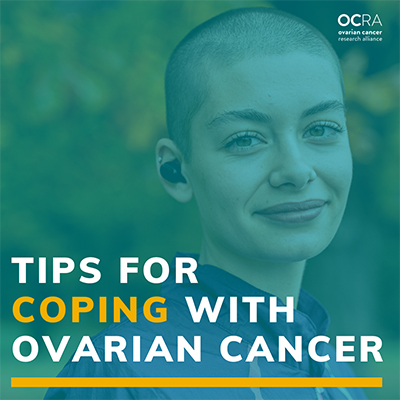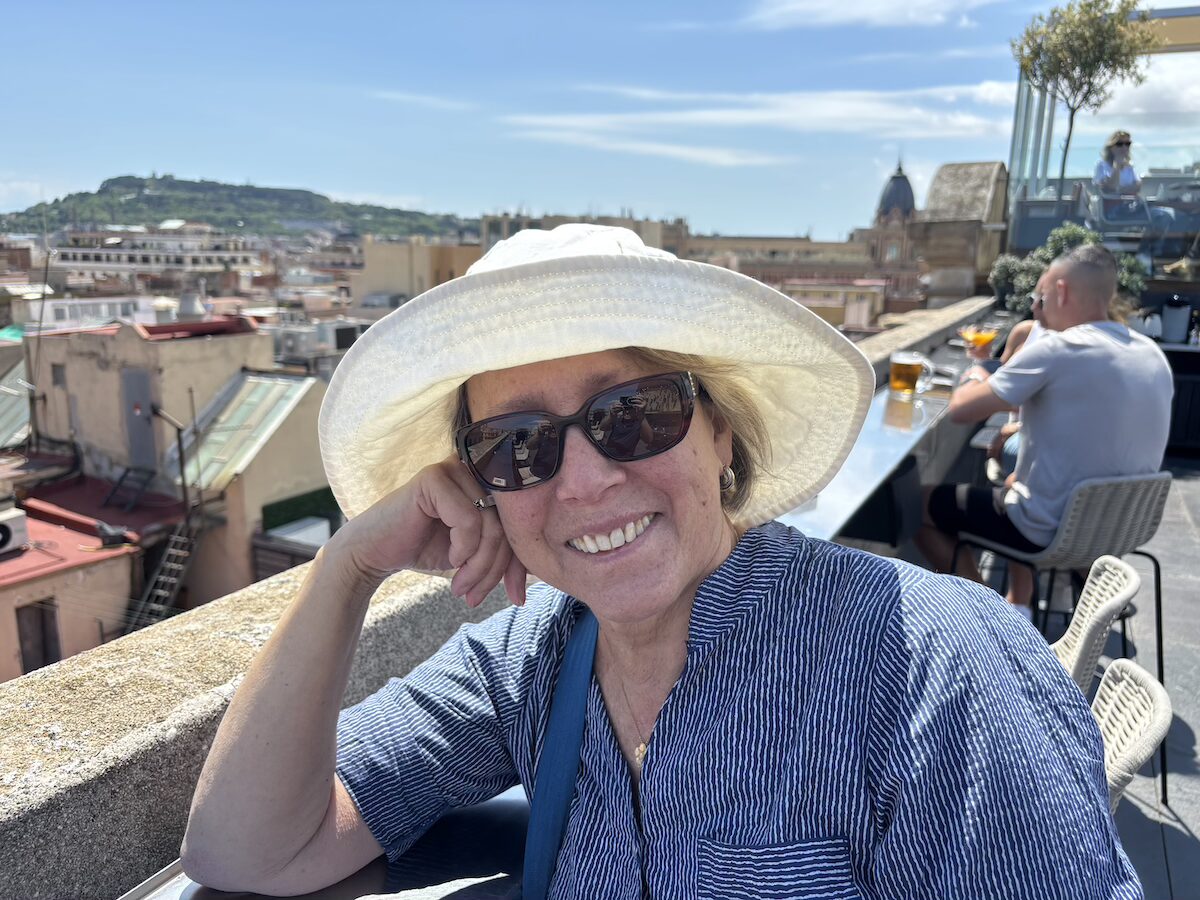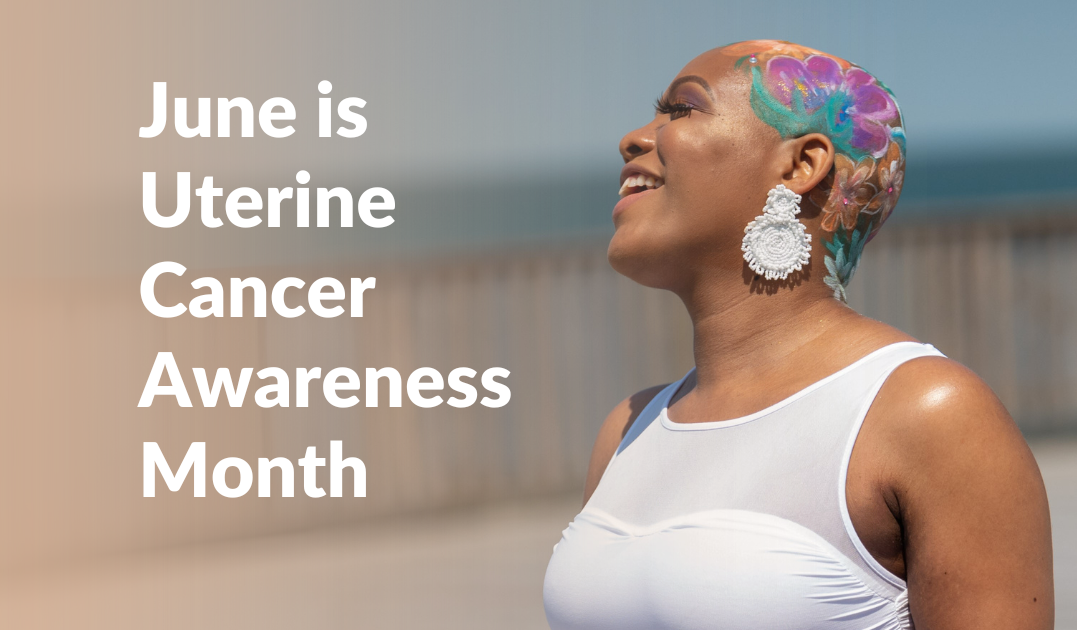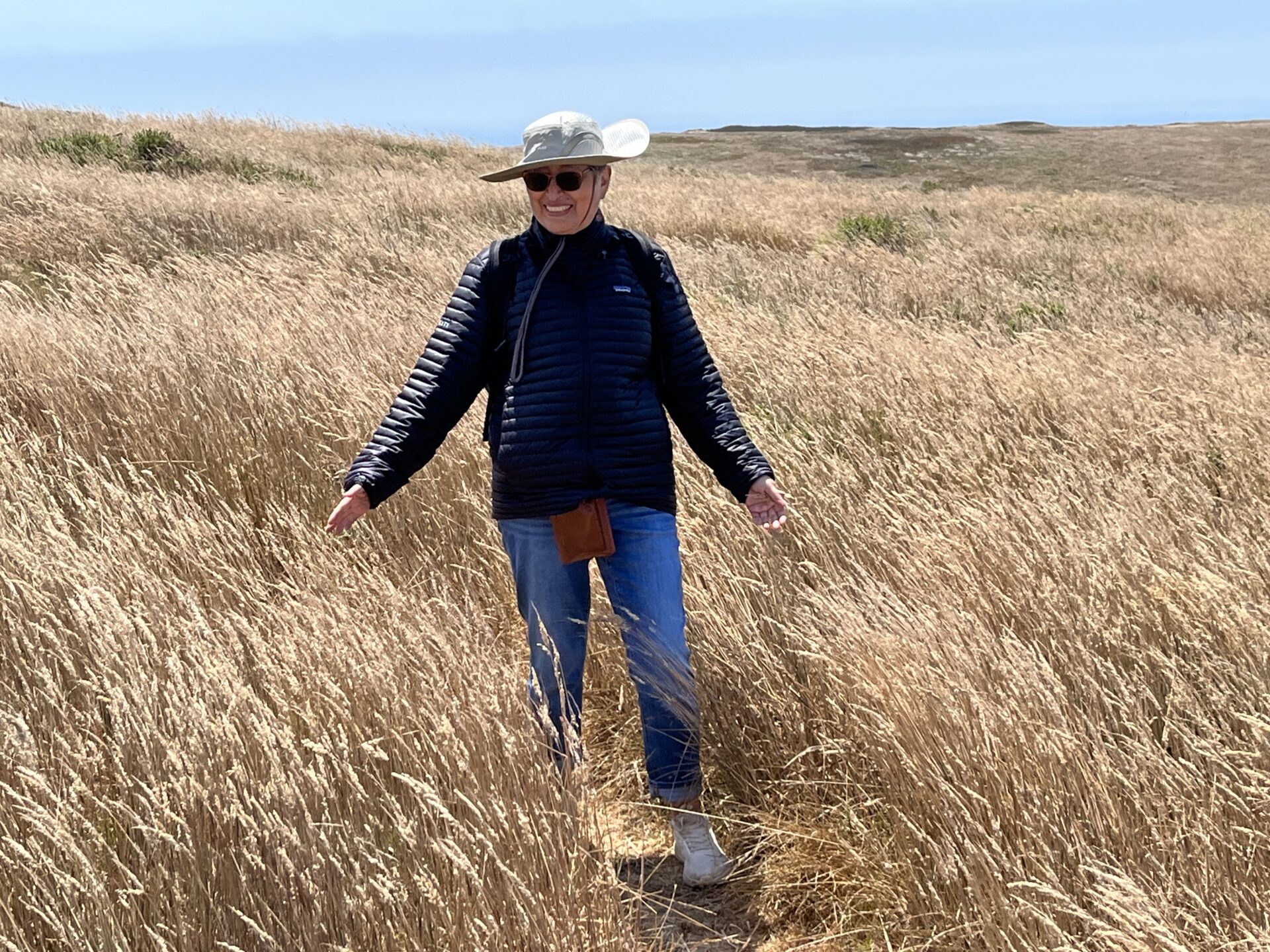
A cancer diagnosis of any type can stress both body and mind, but ovarian cancer takes a particularly high psychological toll on those living with the disease, according to recent research. However, there are different things patients can try to help them thrive during that first year. Read on for practical tips from a medical professional who spoke at OCRA’s Ovarian Cancer National Conference, as well as insightful answers from our community about managing your mental health as you move through treatment and beyond.
I Have Cancer, Now What?
Face Your Fears
Finding out you have ovarian cancer can stir up a lot of emotions, but facing your fears and anxieties head on can help you deal with them in a healthier manner than trying to ignore them. “We all have fears in many different ways and one idea is to actually list the fears,” says Dr. Katherine Fuh, Associate Professor in the Department of Obstetrics and Gynecology at Washington University, St. Louis. She explains that making this list can help you better visualize your situation, the anxieties that accompany it, and the solutions that can help you handle it best as you move forward.
Let Go to Look Ahead
A focus on the present versus the past can also help you shift your perspective as you navigate life post-diagnosis. As Dr. Fuh explains, the past can mean different things to different people, so some may find themselves dwelling on what their days were like before ovarian cancer while others may think about what they experienced during surgery or the first cycle of chemotherapy. “Sometimes the past can have negative feelings, so really sort of let go of that and focus on the day where you are now. And what can be done in the future.”
Draw Strength from Support Systems
When looking ahead, it’s important to acknowledge that not every day will be a good day. And while the bad days may seem to sometimes outweigh the good ones, particularly during treatment, many patients have found it helpful to tap into a support system.
“I do find that with the ones who really look to themselves for strength, that there might be one or two people that they lean on. And that’s totally fine,” says Dr. Fuh. “But there’s some who actually get energy from supporting and getting support from those around them — like a really large group or even social media — you know, people they have never met before.”
Connection Through Common Experience
OCRA offers various ways to connect with others who have faced an ovarian or gynecologic cancer diagnosis, including Woman to Woman Peer Mentoring, our Staying Connected Support Series, and our OCRA Online Community. Read on to see what members of our Inspire community shared in response to commonly asked questions about coping with ovarian cancer.
What to do after you find out you have cancer?
- “Take a deep breath, keep off Google. Tell your family and friends; you will need the support.”
- “Make sure you are being treated by a gynecologic oncologist. Take someone with you to every appointment to help understand what the doctor is suggesting treatment-wise. We all hear different things.”
- “Before making any decisions, it would be really helpful to familiarize yourself with the vocabulary and types of cancer and treatments available.”
- “Get advice on how to best tolerate surgery and treatment to get a positive start on the journey back to feeling better. The support on the Inspire website helped so very much, because I found no one else had the same understanding of the worries, the fears, the uncertainty I was going through.”
- “Don’t be afraid to ask for help with daily activities. My church community set up a meal train that provided dinner daily for my family.”
- “Seek help from a social worker. Get counseling or a health coach.”
Can you live a normal life with cancer?
- “Absolutely! So much is offered in the form of medications and support groups that will help your quality of life.”
- “Who lives a ‘normal’ life? With or without cancer, every individual has challenges at some point in their life. After diagnosis, cancer is part of your life and it’s normal for you.”
- “Yes, though worry has to be tamped down quite a bit. When in treatment it’s hard, but you need to push yourself to move physically which helps you emotionally.”
- “It may not be the same as your previous normal life, but it can be close to the same. I lost some things because of my cancer diagnosis and treatment (most notably, I retired early from teaching). But I also gained some things, such as more meaningful time spent with family and friends and a closer relationship with God.”
- “It is a new normal and will take time for you to adjust. You will learn to manage the side effects of chemo. And you will learn what days are your ‘not so good’ days. There will be activities you will miss, but it makes the ones that you can take part in that much more special.”
- “If you are open to the realization that ‘normal’ means different things to different people in different circumstances, then yes. Being on chemo and later, on a PARP inhibitor, did not feel normal to me but there was an end date, whereas my friend who has lived with Type 1 diabetes since childhood has put up with much, much more and will for the rest of her life. She considers her life ‘normal.’ Perspective is everything.”
How do you cope with cancer?
- “Find the small blessings each day. I volunteer at my local cancer center and talk with those currently undergoing treatment.”
- “Better some days than others. Don’t let your coping responsibilities include coping with other people’s feelings about your cancer. That is theirs to cope with, not yours.”
- “Pray or meditate. My faith in God’s plan for me brings me great peace.”
- “On the days I am not feeling well from treatment, I try to focus on the things I will be doing when the side effects of the chemo pass. I always try to plan something fun for the days between treatments that I am feeling better. It gives me something to look forward to in the future.”
- “I do what I can to make sure I am keeping healthy — taking medicine faithfully, exercising, drinking plenty of water, keeping up with any side effects — and I joined a cancer support exercise group at the YMCA and participated in the Colorado State exercise program.”
- “Every major change in your life helps to prepare you for the next major change. The same coping skills that got you through everything you’ve survived so far will get you through cancer.”
How do you survive cancer emotionally?
- “Sometimes it’s still a struggle. Know that there will be ups and downs, but it helps to focus on things you can control (medication, water intake, exercise) and take each day one at a time.”
- “I kept a diary which really helped. I also had counseling post chemo.”
- “”Expect to go through a grieving process as you work through your diagnosis. Shock, denial, anger, guilt, bargaining, and depression are common as you come to acceptance and hope.”
- “How I’ve done it so far: Acknowledge my fear but keep it in its place. Ignore 80% of what well-meaning people say because they nearly always say the worst possible thing. Claim my feelings and resist the sense of pressure from others to feel a certain way.”
- “Give myself permission to be occasionally sad but otherwise find something I love to do each day. Keep busy.”
Any additional words of advice?
- “I wrote on my bathroom mirror some encouraging phrases and a treatment countdown. It helps me remember all my Whys for enduring the chemo.”
- “Don’t be afraid to seek out a second opinion. I was advised by a doctor friend whom I trust and respect to get a second opinion. I saw a gynecologic oncologist at an ovarian cancer research hospital. She agreed with my doctor’s plan of action, but she also gave me more information about my diagnosis. I was afraid to tell my doctor about reaching out for a second opinion, but he was completely fine with it.”
- “Ask to have your tumor tested; it can make a difference in the choice of the best treatment for you! It’s always good to remember that ovarian cancer is really not one single disease but can be caused by many different mutations.”
- “Demand answers from doctors; don’t leave appointments with questions causing you to look them up alone on the Internet.”
- “No one person can provide everything you need all the time, so build a team. Don’t judge if someone doesn’t come through for you in a way you expected. They might play a part in your team in a different way or at a different time.”
- “Never assume anything with ovarian cancer. More and more treatments and trials are offered which have succeeded in lengthening years of life and even a permanent remission. There could always be something around the corner which could be a breakthrough.”
We hope that you have found these insights helpful. And please remember that we are here for you. In addition to our Inspire community, Staying Connected online support groups, and Woman to Woman peer mentorship, we also have a Patient Support team available to take your calls Monday – Friday, at 212-268-1002. If she is not available when you call, she will call you back within 24 hours (Mon. – Fri.).
For more tips, including ways to help bolster your physical health through treatment and beyond, visit our online video collection to watch Dr. Fuh’s full presentation of The First Year: Thriving After Your Initial Diagnosis.


